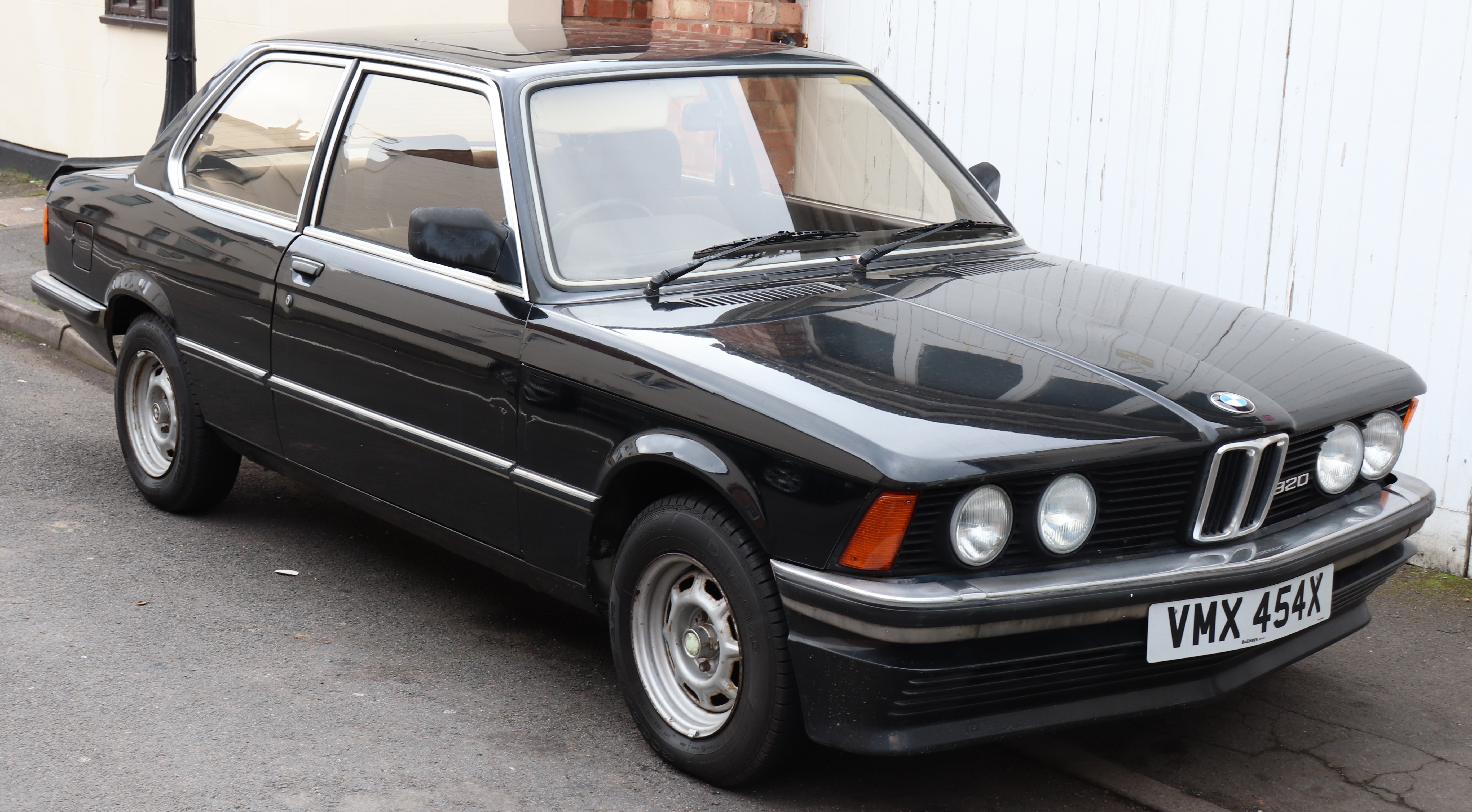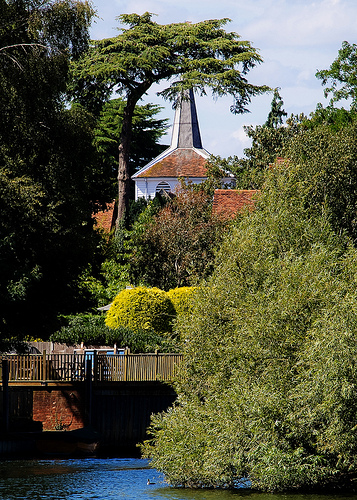|
BMW Bavaria
The BMW New Six (also known as the BMW E3) is a line of mid-size luxury sedans and grand tourer coupés produced by the German automaker BMW from 1968 to 1977. All models used the then-new M30 straight-6 engine. It marked BMW's return to the full-size luxury sedan market after a hiatus of 5 years and was introduced as a response to growing market segment dominated by Mercedes-Benz. It was important in establishing BMW's reputation as a maker of sporting, luxury sedans. The BMW New Six coupés (better known as the BMW E9) are built on a shortened version of the E3 platform. The E9 coupés share engines, transmissions, suspension and many other features with the E3 sedans. A total of 221,991 sedans and coupés were built. Development After a long hiatus, BMW decided to develop a six-cylinder car in the early 1960s. Work on what was to become the E3 commenced in 1965. The engine was based on the existing fours, sharing their overall layout while not merely an addition of two ... [...More Info...] [...Related Items...] OR: [Wikipedia] [Google] [Baidu] |
Munich
Munich ( ; german: München ; bar, Minga ) is the capital and most populous city of the German state of Bavaria. With a population of 1,558,395 inhabitants as of 31 July 2020, it is the third-largest city in Germany, after Berlin and Hamburg, and thus the largest which does not constitute its own state, as well as the 11th-largest city in the European Union. The city's metropolitan region is home to 6 million people. Straddling the banks of the River Isar (a tributary of the Danube) north of the Bavarian Alps, Munich is the seat of the Bavarian administrative region of Upper Bavaria, while being the most densely populated municipality in Germany (4,500 people per km2). Munich is the second-largest city in the Bavarian dialect area, after the Austrian capital of Vienna. The city was first mentioned in 1158. Catholic Munich strongly resisted the Reformation and was a political point of divergence during the resulting Thirty Years' War, but remained physicall ... [...More Info...] [...Related Items...] OR: [Wikipedia] [Google] [Baidu] |
Straight-6
The straight-six engine (also referred to as an inline-six engine; abbreviated I6 or L6) is a piston engine with six cylinders arranged in a straight line along the crankshaft. A straight-six engine has perfect primary and secondary engine balance, resulting in fewer vibrations than other designs of six or less cylinders. Until the mid-20th century, the straight-six layout was the most common design for engines with six cylinders. However, V6 engines became more common from the 1960s and by the 2000s most straight-six engines had been replaced by V6 engines. An exception to this trend is BMW which has produced automotive straight-six engines from 1933 to the present day. Characteristics In terms of packaging, straight-six engines are almost always narrower than a V6 engine or V8 engine, but longer than straight-four engines, V6s, and most V8s. Straight-six engines are typically produced in displacements ranging from , however engines ranging in size from the Benelli ... [...More Info...] [...Related Items...] OR: [Wikipedia] [Google] [Baidu] |
BMW 3
The BMW 3 Series is a line of compact executive cars manufactured by the German automaker BMW since May 1975. It is the successor to the 02 Series and has been produced in seven generations. The first generation of the 3 Series was only available as a 2-door saloon; however, the model range has since expanded to include a 4-door saloon, 2-door convertible, 2-door coupé, 5-door estate, 5-door liftback (" Gran Turismo") and 3-door hatchback body styles. Since 2013, the coupé and convertible models have been marketed as the 4 Series; therefore, the 3 Series range no longer includes these body styles. The 3 Series is BMW's best-selling model, accounting for around 30% of the BMW brand's annual total sales (excluding motorbikes), and has won numerous awards throughout its history. The M version of the 3 series, M3, debuted with the E30 M3 in 1986. First generation (E21; 1975) The E21 replaced the 02 Series and was initially available as a 2-door sedan (also described a ... [...More Info...] [...Related Items...] OR: [Wikipedia] [Google] [Baidu] |
Thames Ditton
Thames Ditton is a suburban village on the River Thames, in the Elmbridge borough of Surrey, England. Apart from a large inhabited island in the river, it lies on the southern bank, centred 12.2 miles (19.6 km) southwest of Charing Cross in central London. Thames Ditton is just outside Greater London but within the Greater London Urban Area as defined by the Office for National Statistics. Its clustered village centre and shopping area on a winding High Street is surrounded by housing, schools and sports areas. Its riverside faces the Thames Path and Hampton Court Palace Gardens and golf course in the London Borough of Richmond upon Thames. Its most commercial area is spread throughout its conservation area and contains restaurants, cafés, shops and businesses. Its railway station, one of two on the Hampton Court branch line, is from the riverside end of the village centre and the village of Weston Green that hived off from it in 1939. Thames Ditton joins Long ... [...More Info...] [...Related Items...] OR: [Wikipedia] [Google] [Baidu] |
Road & Track
''Road & Track'' (stylized as ''R&T'') is an American automotive enthusiast magazine. It is owned by Hearst Magazines and is published 6 times per year. The editorial offices are located in New York, New York. History ''Road & Track'' (often abbreviated ''R&T'') was founded by two friends, Wilfred H. Brehaut, Jr. and Joseph S. Fennessy, in 1947, in Hempstead, New York. Published only six times from 1947 to 1949, it struggled in its early years. By 1952, regular contributor and editor John R. Bond and his wife Elaine had become the owners of the magazine, which then grew until its sale to CBS Publications in 1972. The ampersand (&) in the title was introduced in 1955 by then Editor Terry Galanoy, who replaced the word "and" in the magazine's name because the words Road and Track were graphically too long for newsstand-effective recognition. In 1988, Hachette Filipacchi Media took ownership of the magazine. In October 2008, Matt DeLorenzo became editor-in-chief, succeeding T ... [...More Info...] [...Related Items...] OR: [Wikipedia] [Google] [Baidu] |
Mercedes-Benz W114
The Mercedes-Benz W114 and W115 were the internal designation Mercedes-Benz used for a generation of front-engine, rear-drive, five-passenger Sedan (car), sedans and coupés introduced in 1968, with three-box styling by Paul Bracq — succeeding the Mercedes-Benz W110, W110 models introduced in 1961; and manufactured until model year 1976, when the Mercedes-Benz W123, W123 was released. W114/W115s were distinguished in the marketplace by nameplates relating to their engine size. W114 models featured six-cylinder engines and were marketed as the ''230'', ''250'', and ''280''. W115 models featured four-cylinder engines and were marketed as the ''200'', ''220'', ''230'', and ''240'', with diesel models carrying a ''D'' designation, as distinct from gasoline/petrol models. When Mercedes introduced the W114/115 in 1968, they marketed sedans in two size classes (W114/W115 and S-Class) and marketed the W114/115 range as ''New Generation Models'', ultimately the only model of the ne ... [...More Info...] [...Related Items...] OR: [Wikipedia] [Google] [Baidu] |
Fuel Injection
Fuel injection is the introduction of fuel in an internal combustion engine, most commonly automotive engines, by the means of an injector. This article focuses on fuel injection in reciprocating piston and Wankel rotary engines. All compression-ignition engines (e.g. diesel engines), and many spark-ignition engines (i.e. petrol engines, such as Otto or Wankel), use fuel injection of one kind or another. Mass-produced diesel engines for passenger cars (such as the Mercedes-Benz OM 138) became available in the late 1930s and early 1940s, being the first fuel-injected engines for passenger car use. In passenger car petrol engines, fuel injection was introduced in the early 1950s and gradually gained prevalence until it had largely replaced carburettors by the early 1990s. The primary difference between carburetion and fuel injection is that fuel injection atomizes the fuel through a small nozzle under high pressure, while a carburettor relies on suction created by intake ... [...More Info...] [...Related Items...] OR: [Wikipedia] [Google] [Baidu] |
BMW New Class Coupé
The BMW New Class (german: Neue Klasse) was a line of sedans and coupes produced by German automaker BMW between 1962 and 1977. These models ensured BMW's solvency after the company's financial crisis of the 1950s and established the identity of BMW automobiles as sports sedans. The first New Class vehicle was the 1500, a 4-door compact executive car with the new M10 (at the time called M115) OHC 4-cylinder engine. In 1965, the 2000C and 2000CS luxury coupés were added to the range. Replacement of the New Class models began with the larger 2000C and 2000CS coupés, which were replaced by the 6-cylinder E9 2800CS in 1969. In 1972, the 4-door sedans were replaced by the larger E12 5 Series. The New Class coupes introduced the Hofmeister kink, which has been used on most BMW cars since. Another legacy of the New Class is the iconic 02 Series, which are a shortened version of the New Class sedans. Overview Background During the 1950s, the BMW line-up consisted of luxury car ... [...More Info...] [...Related Items...] OR: [Wikipedia] [Google] [Baidu] |
Giovanni Michelotti
Giovanni Michelotti (6 October 1921 – 23 January 1980) was one of the most prolific designers of sports cars in the 20th century. His notable contributions were for Ferrari, Lancia, Maserati and Triumph marques. He was also associated with truck designs for Leyland Motors, and with designs for British Leyland (including the Leyland National bus) after the merger of Leyland and BMC. Born in Turin, Italy, Michelotti worked for coachbuilders, including Stabilimenti Farina, Vignale, Allemano, Bertone, Ghia, Ghia-Aigle, Scioneri, Monterosa, Viotti, Fissore and OSI, before opening his own design studio in 1959. He also cooperated with manufacturers producing their own cars based on Fiat or other mechanicals, like Siata, Moretti, Francis Lombardi and Nardi. From 1962, Michelotti concluded cooperation with Carrozzeria Vignale and began his own coachbuilding activities. Towards the end of his life, asked whether he had ever designed anything other than cars, Michelotti ac ... [...More Info...] [...Related Items...] OR: [Wikipedia] [Google] [Baidu] |
Gruppo Bertone
Gruppo Bertone, commonly known as Bertone, was an Italian industrial design company which specialized in car styling, coachbuilding and manufacturing. It formerly was also a car manufacturing company. Bertone styling was distinctive, with most cars having a strong "family resemblance" even if they were badged by different manufacturers. Bertone had styled cars for Abarth, Alfa Romeo, Aston Martin, BMW, Citroën, Ferrari, FIAT, Iso, Lancia, Lamborghini, Mercedes-Benz, Opel, and Volvo, among others. In addition, the Bertone studio was responsible for two of the later designs of the Lambretta motorscooter. The company was based in Grugliasco in northern Italy. Gruppo Bertone was founded as ''Carrozzeria Bertone'' in 1912 by Giovanni Bertone. Designer Nuccio Bertone took charge of the company after World War II and the company was divided into two units: ''Carrozzeria'' for manufacturing and ''Stile Bertone'' for styling. Until its bankruptcy in 2014, the company was headed by ... [...More Info...] [...Related Items...] OR: [Wikipedia] [Google] [Baidu] |






